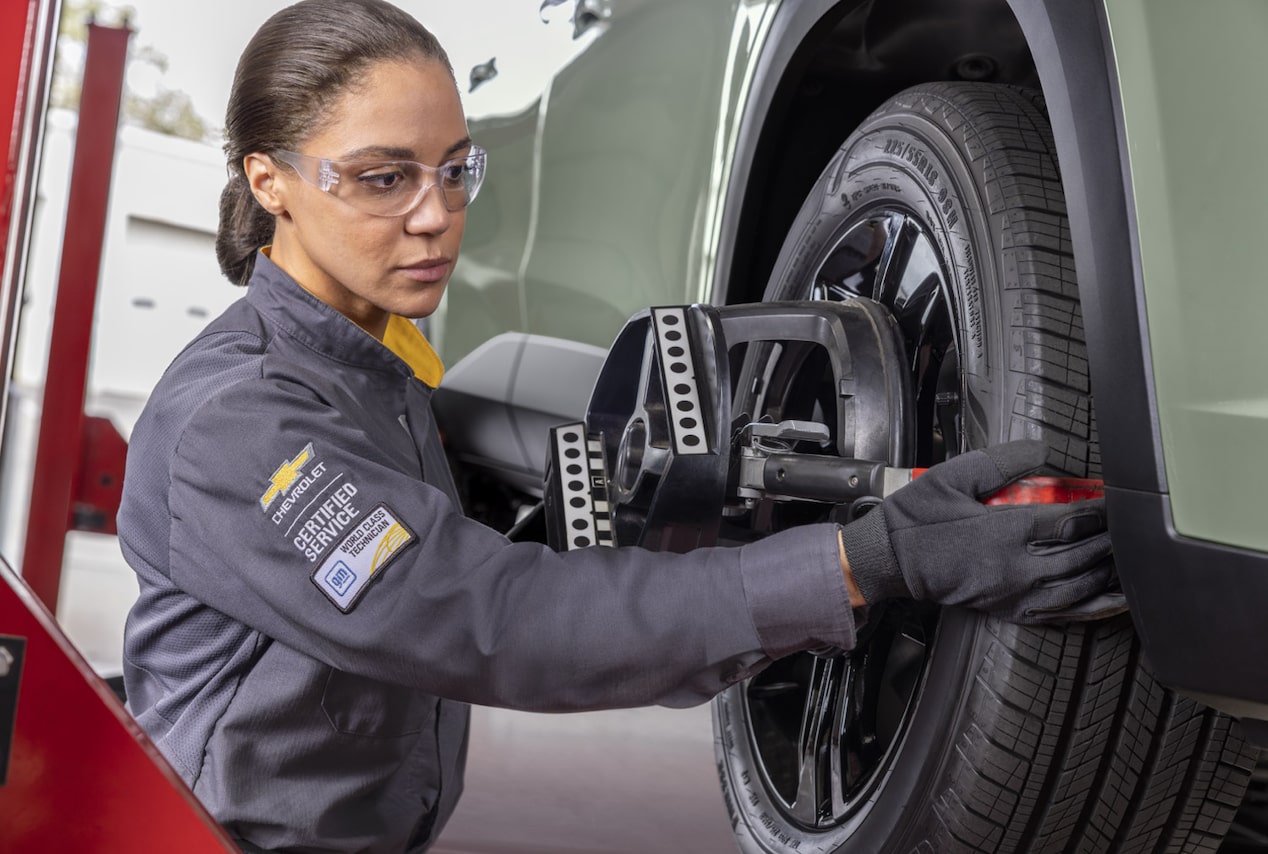All Categories
Featured
Routine tire rotations are an essential yet often ignored facet of lorry maintenance. This straightforward procedure, which entails transforming the placement of your tires, aids preserve also use throughout all four tires, inevitably improving your lorry's efficiency and longevity. Let's discover the value of tire rotations and the tangible advantages they provide.
What Is a Tire Turning?
![]()
Tire rotation entails relocating the tires to different positions on your automobile. The front tires might be exchanged with the back ones, or they may be gone across from one side of the lorry to the various other. The rotation pattern depends on aspects like your vehicle's drivetrain (front-wheel drive, rear-wheel drive, or all-wheel drive) and the kind of tires you use.
Why Are Normal Tire Rotations Vital?
Tire turnings ensure that all tires use down uniformly. Unequal tire wear occurs normally since different tires experience differing levels of stress and anxiety based on their setting. For instance:
Front tires on front-wheel-drive lorries take care of more jobs like guiding, braking, and velocity, creating them to wear much faster.
Back tires on rear-wheel-drive vehicles bear similar burdens, leading to uneven wear patterns if left unattended.
![]()
Without normal rotations, some tires may wear prematurely, necessitating substitute faster than expected.
Benefits of Normal Tire Rotations
Improved Performance and Handling. Also tire wear aids preserve well balanced traction across all four tires. This balance is vital for optimal automobile handling, especially in difficult driving problems such as rainfall or snow.
Extended Tire Lifespan. Normal turnings disperse use more evenly, lowering the demand for constant substitutes and saving you cash in the long run.
![]()
Enhanced Fuel Performance. Unevenly used tires can boost moving resistance, compeling your engine to function harder and consume more fuel. Effectively turned tires ensure smoother trips and far better gas economic situation.
Safety. Used tires concession grip and stopping efficiency, raising the risk of crashes. Revolving your tires routinely preserves regular tread deepness and makes certain a much safer driving experience.
How Often Should You Revolve Your Tires?
Many experts suggest turning your tires every 5,000 to 7,500 miles, but this can vary based on your car's manufacturer standards. It's a great technique to incorporate tire rotations with regular solutions like oil changes for convenience.
Signs You Need a Tire Rotation
Uneven walk endure your tires.
Recognizable resonance while driving.
Problem taking care of the lorry on slippery or wet roadways.
Final Thoughts
Routine tire rotations are a simple yet impactful maintenance task that enhances car performance, improves safety and security, and conserves you cash. By devoting to this method, you'll delight in a smoother driving experience and a much longer life-span for your tires. Consult your lorry's handbook or a relied on technician to ensure you're adhering to the best rotation timetable and pattern for your vehicle.
What Is a Tire Turning?

Tire rotation entails relocating the tires to different positions on your automobile. The front tires might be exchanged with the back ones, or they may be gone across from one side of the lorry to the various other. The rotation pattern depends on aspects like your vehicle's drivetrain (front-wheel drive, rear-wheel drive, or all-wheel drive) and the kind of tires you use.
Why Are Normal Tire Rotations Vital?
Tire turnings ensure that all tires use down uniformly. Unequal tire wear occurs normally since different tires experience differing levels of stress and anxiety based on their setting. For instance:
Front tires on front-wheel-drive lorries take care of more jobs like guiding, braking, and velocity, creating them to wear much faster.
Back tires on rear-wheel-drive vehicles bear similar burdens, leading to uneven wear patterns if left unattended.

Without normal rotations, some tires may wear prematurely, necessitating substitute faster than expected.
Benefits of Normal Tire Rotations
Improved Performance and Handling. Also tire wear aids preserve well balanced traction across all four tires. This balance is vital for optimal automobile handling, especially in difficult driving problems such as rainfall or snow.
Extended Tire Lifespan. Normal turnings disperse use more evenly, lowering the demand for constant substitutes and saving you cash in the long run.

Enhanced Fuel Performance. Unevenly used tires can boost moving resistance, compeling your engine to function harder and consume more fuel. Effectively turned tires ensure smoother trips and far better gas economic situation.
Safety. Used tires concession grip and stopping efficiency, raising the risk of crashes. Revolving your tires routinely preserves regular tread deepness and makes certain a much safer driving experience.
How Often Should You Revolve Your Tires?
Many experts suggest turning your tires every 5,000 to 7,500 miles, but this can vary based on your car's manufacturer standards. It's a great technique to incorporate tire rotations with regular solutions like oil changes for convenience.
Signs You Need a Tire Rotation
Uneven walk endure your tires.
Recognizable resonance while driving.
Problem taking care of the lorry on slippery or wet roadways.
Final Thoughts
Routine tire rotations are a simple yet impactful maintenance task that enhances car performance, improves safety and security, and conserves you cash. By devoting to this method, you'll delight in a smoother driving experience and a much longer life-span for your tires. Consult your lorry's handbook or a relied on technician to ensure you're adhering to the best rotation timetable and pattern for your vehicle.
Latest Posts
Check Out Top Car Repair Services at Montclare Auto Repair – Expert Care for Your Vehicle
Published en
1 min read
Why Consistent Car Maintenance at Montclare Auto Repair Reduces Costs
Published en
1 min read
Find the Greatest Auto Repair Offers in Montclare, Chicago
Published en
1 min read
More
Latest Posts
Check Out Top Car Repair Services at Montclare Auto Repair – Expert Care for Your Vehicle
Published Jun 01, 25
1 min read
Why Consistent Car Maintenance at Montclare Auto Repair Reduces Costs
Published May 30, 25
1 min read
Find the Greatest Auto Repair Offers in Montclare, Chicago
Published May 27, 25
1 min read